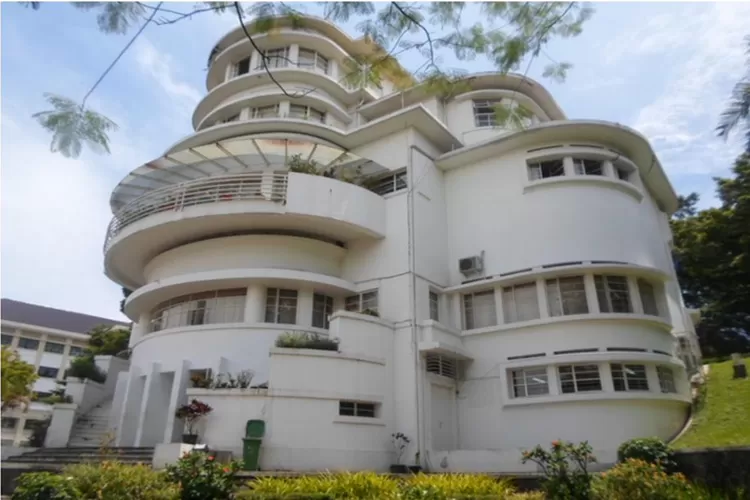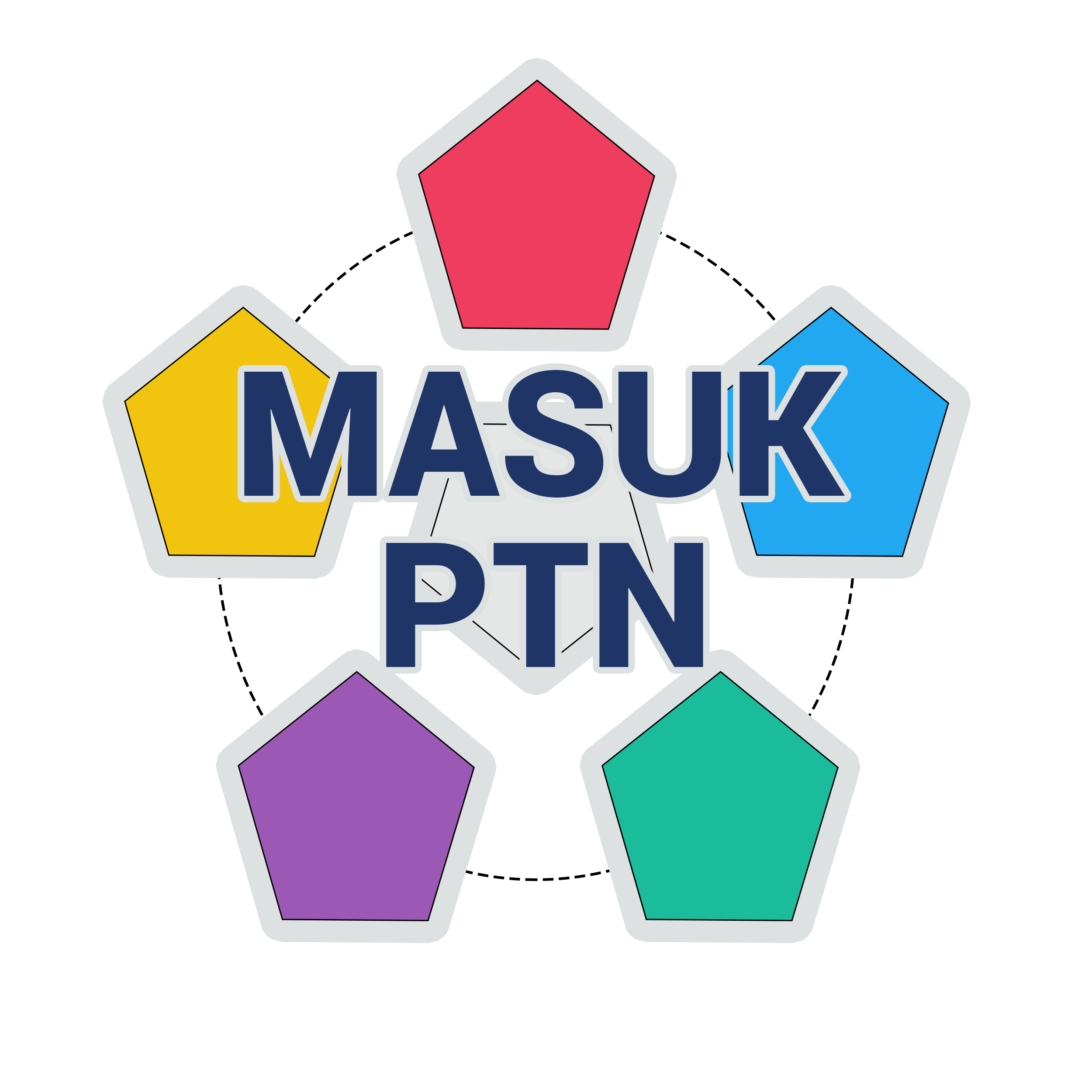SEJARAH
The Study Program of Sundanese Education was founded in 1957. Initially, it was named the Section of Sundanese Language and Literature, as a part of the Department of Indonesian Language and Literature of the Teacher Education College (PTPG ). In 1958, the PTPG’s status was later changed to the Faculty of Teacher Training and Education (FKIP) of Universitas Padjadjaran (the University of Padjadjaran). In 1963, the name Section of Sundanese Language and Literature was changed to the Department of Sundanese Language and Literature at the Teaching Faculty of Literature and Arts (FKSS) IKIP. This is also one of the government’s efforts to integrate the FKIP and the Teacher Education Institute (IPG) into the Bandung Institute of Teacher Training and Pedagogy (IKIP). Based on the Decree of the Minister of Education and Culture Number 0134/1983, the Study Program of Sundanese Language and Literature Education was again merged with the Department of Indonesian Language and Literature Education under the auspices of the Indonesian and Regional Language and Literature Education Program. Since IKIP Bandung was turned into the Indonesia University of Education (UPI – Universitas Pendidikan Indonesia ) BHMN, the Study Program of Sundanese Language and Literature Education (Sunda) has been stand-alone again.It is in accordance with Presidential Decree Number 124/1999. In 2018, the Department of Regional Language Education was changed into the Study Program of Sundanese Education.
LAB
- LAB KOMPUTER
- LAB BAHASA
PROGRAM STUDI
Vision
In 2025, the Study Program of Sundanese Education will become a pioneer and outstanding study program in providing education, research, and community service in the fields of language, literature, and culture of Sundanese as well as its learning with national and international standard management.
Mission
Organizing Sundanese language, literature, and culture education; and fostering outstanding Sundanese language and literature disciplines in a conducive and pleasant academic atmosphere with national and international quality standards.
Performing excellent research, developing and publishing innovative and competitive works in the fields of language, literature, and culture of Sundanese and its learning.
Providing quality and sustainable community service services in language, literature, and culture of Sundanese and its learning.
Building synergistic and harmonious partnerships with various related parties, at regional, national, and international levels on Sundanese language, literature, culture, and learning.
Based on the decision of BAN PT NO 3010/SK/BAN-PT/AKRED/S/XI/2018, the Study Program of Sundanese Education is accredited by A. It is valid until November 2023.
Currently, the Study Program of Sundanese Education consists of 16 lecturers and one administrative staff. The lecturers of the study program have various scientific backgrounds such as language, literature, education, and culture of Sundanese. The lecturers are active in publishing their works in the form of books, essays in print media, and scientific articles published locally, nationally, and internationally. The following is the Organizational Structure of Lecturers of the Study Program of Sundanese Education.
The courses in the Study Program of Sundanese Education consist of general courses, basic education courses, faculty expertise courses, study-program expertise core courses, and courses of learning expertise in the field of study. All courses will support alumni careers when they teach at schools.
Based on the development of the curriculum of the Indonesian Qualification Framework, Sundanese is the mother tongue and the first language of the people of West Java. Therefore, the level of language proficiency of the students of the Sundanese Education Study Program is at level 6.
Currently, the ratio of lecturers to students in the Study Program is ideal. Based on the Decree of the Minister of National Education of the Republic of Indonesia Number 234/U/2000 on the Guidelines for the Establishment of Higher Education. The ratio of lecturers to students for Social Sciences is 1:30.
The Study Program of Sundanese Education was in the favorite position to be chosen by prospective students. The number of prospective students who registered to enter The Study Program in the last five years, from 2017 to 2021, was 5,136. The number of students who passed and has entered the Study Program were 584; and 510 of them managed to enter, register, and study on campus.
The students of the Study Program come from various regions in West Java. Some students are from outside West Java, such as Brebes, Central Java. There are also students who come from abroad to take part in cultural lectures in the Study Program, such as the students from Universite de la Rochelle, France.
The learning is performed offline. During the Covid-19 pandemic, the learning is performed using the online method. Both online and offline learning are carried out well and directed.
Some student activities are carried out consistently annually. For instance, Riksa Budaya Sunda (the Sundanese Cultural Preservation) is a students’ activity that carries out several competitions related to Sundanese learning in schools. Many schools from every level throughout West Java participate in Riksa Budaya Sunda.
Bende Rancage is a student activity that serves as introduction to official community service activity. The students carry out social, educational, cultural, and teaching activities in several targeted places based on the needs of the local community.
Pagelaran (literally: Performance) is carried out and adapted to the lecture material. In addition, the performance is also related to students union’s activities.
Poe Basa Indung Internasional (International Mother Language Day) is consistently commemorated every February 21. The students fully support all activities related to language preservation. Activities to commemorate the day include conducting a campaign around the city of Bandung to voice the Sundanese language that must be preserved and used in daily life so that its existence is maintained, in addition to holding seminars related to the mother tongue theme.
Wawanohan is a discussion activity with figures and experts in the fields of language, literature, culture, and teaching. Usually, new students who will start lectures in the first semester perform the activity.
Sabareuma is a part of the student orientation activity. It is carried out in the forest and aims to love nature more. Life must be balanced with protecting nature as well as with science.
Other documentation related to lecturers is Community Service. It is carried out through online and offline modes.
Many students get achievements at the local and national levels. The following are the awards for students who won the best category at the national level.
From the tracer study data that has been filled in by the graduates, the types of work of alumni after completing their study assignments include work as teachers, lecturers, and entrepreneurs.
The following is the collaboration of the Study Program with scientific associations, domestic and foreign universities, government institutions, and teacher communication focus.
The Study Program has a website that is accessible to anyone. It contains the study program’s profiles, news, students, and class schedules at http://sunda.upi.edu/

 MASUK PTN
MASUK PTN